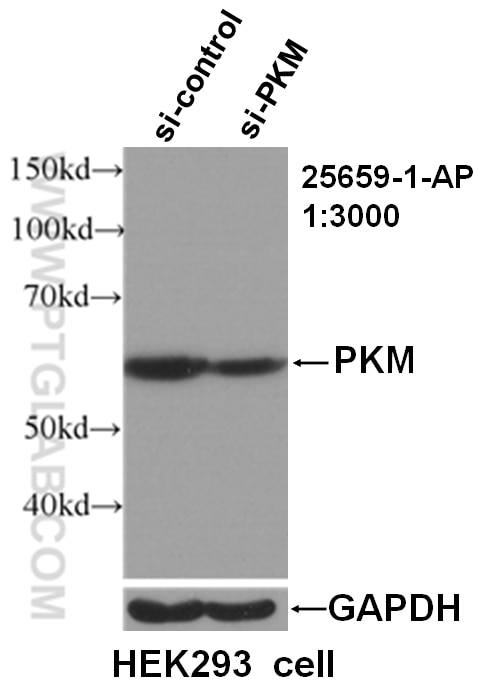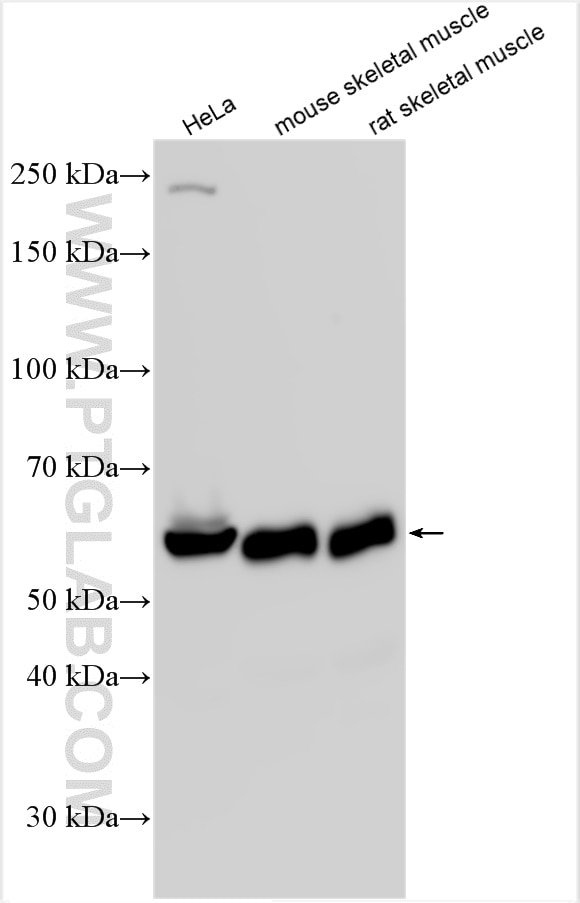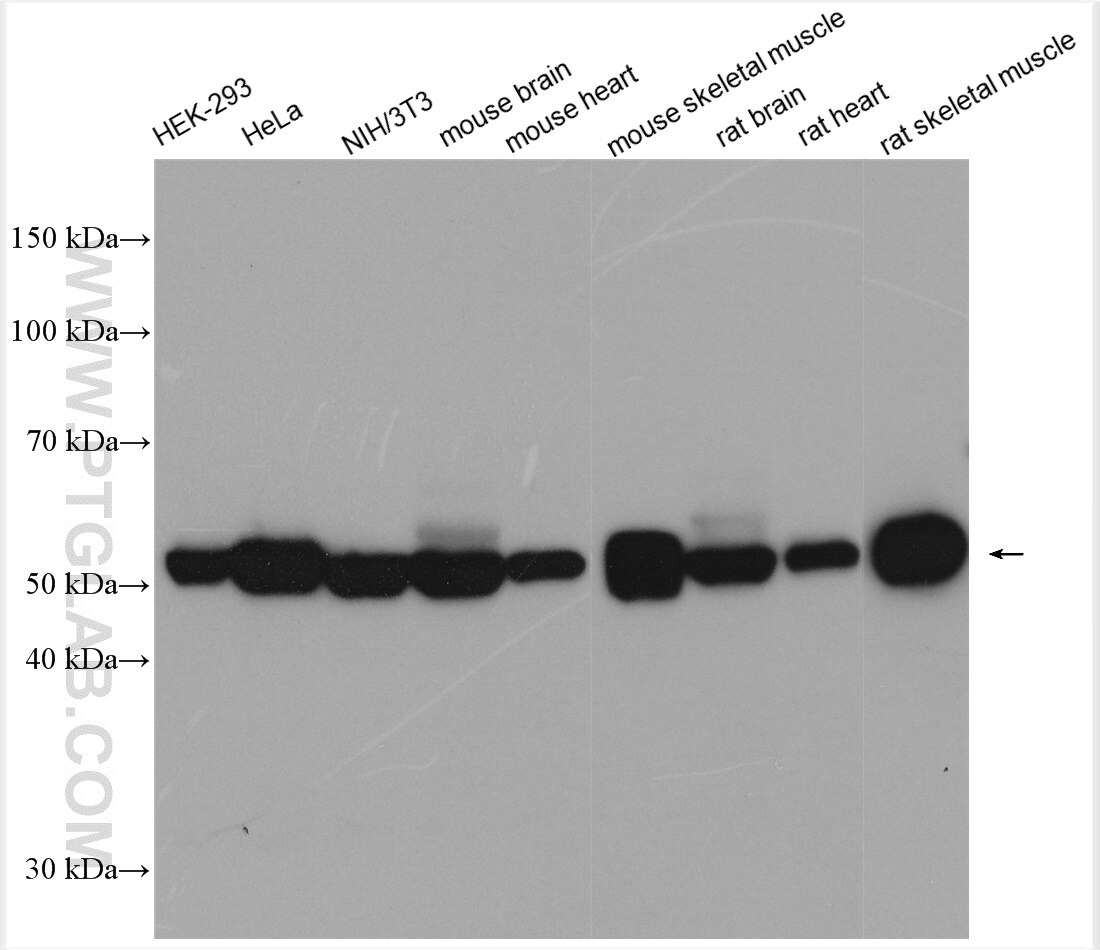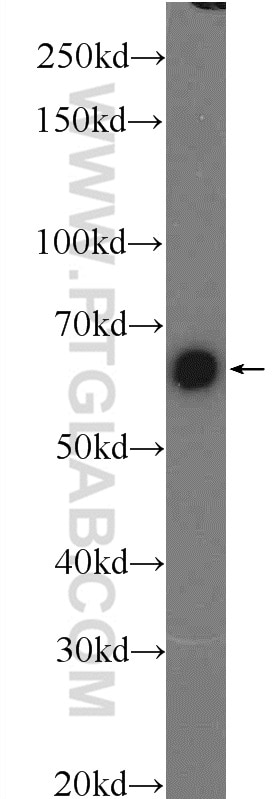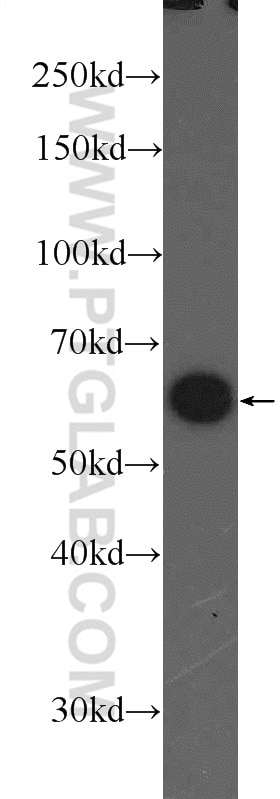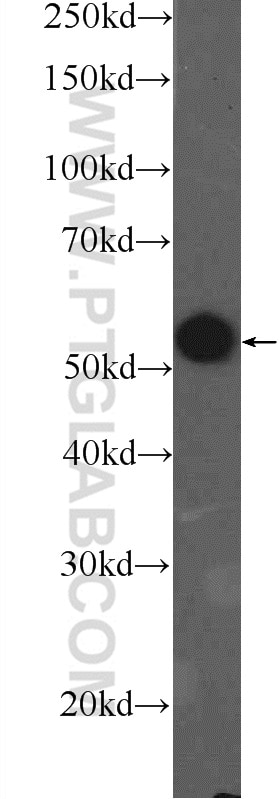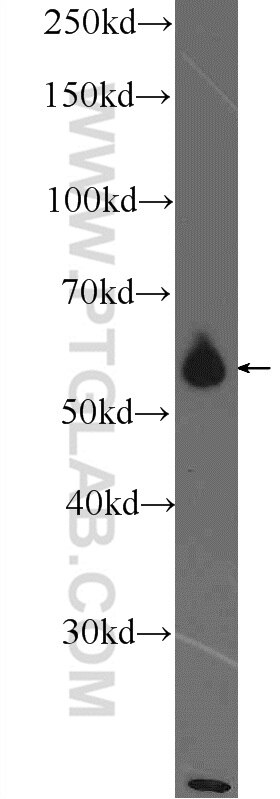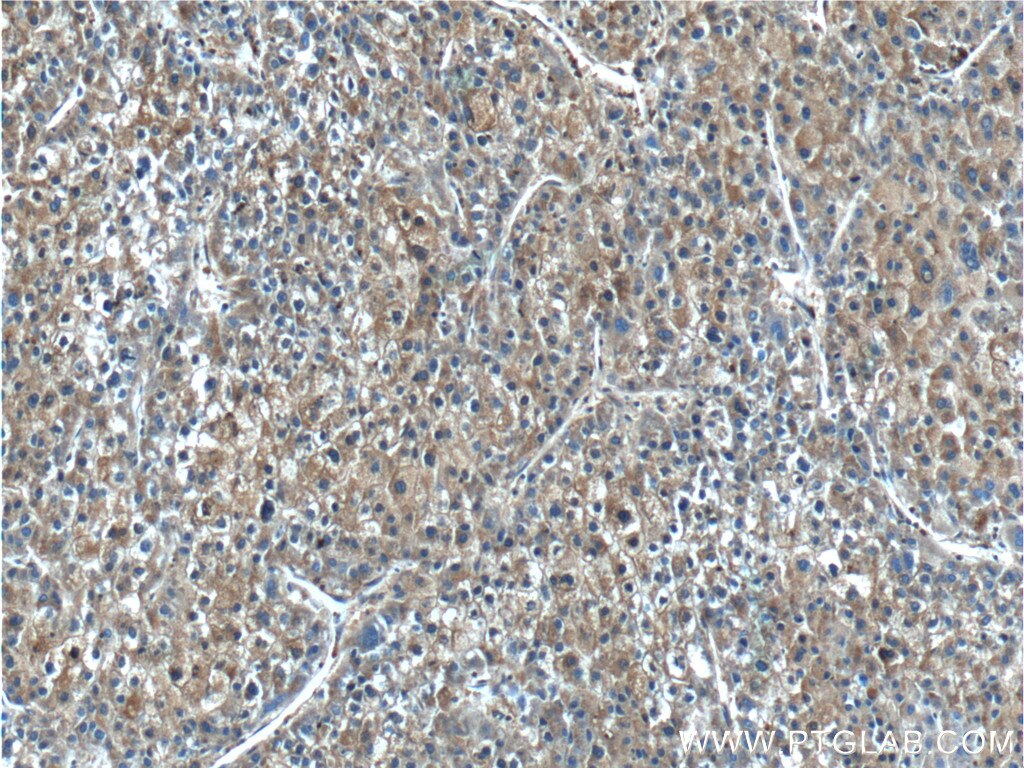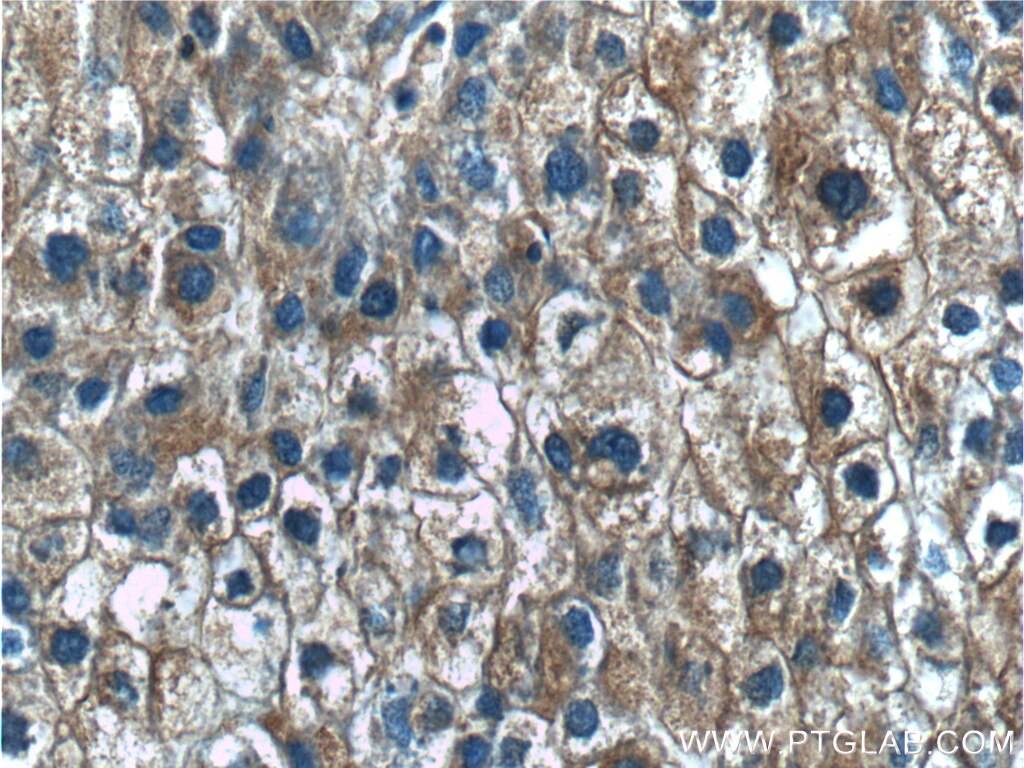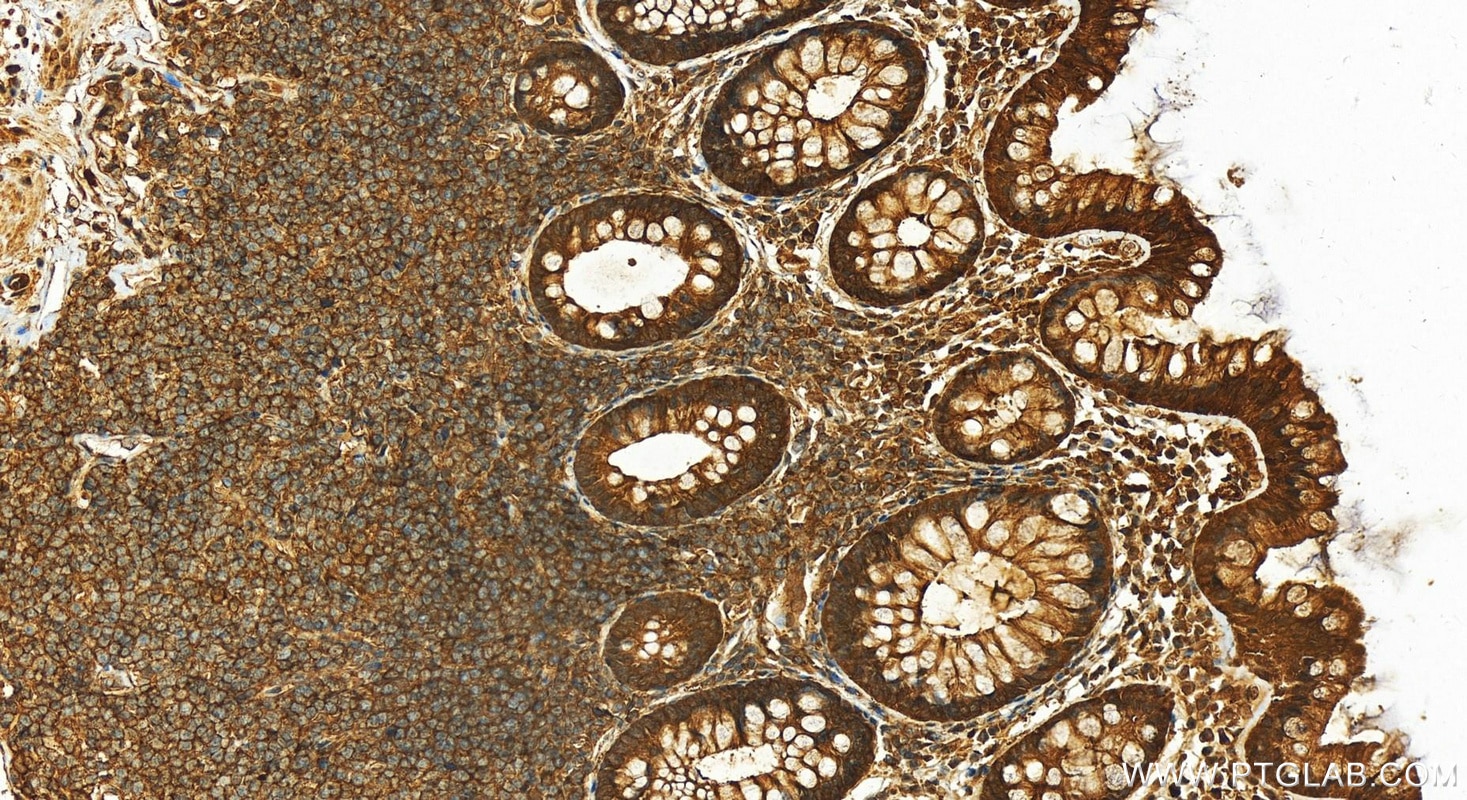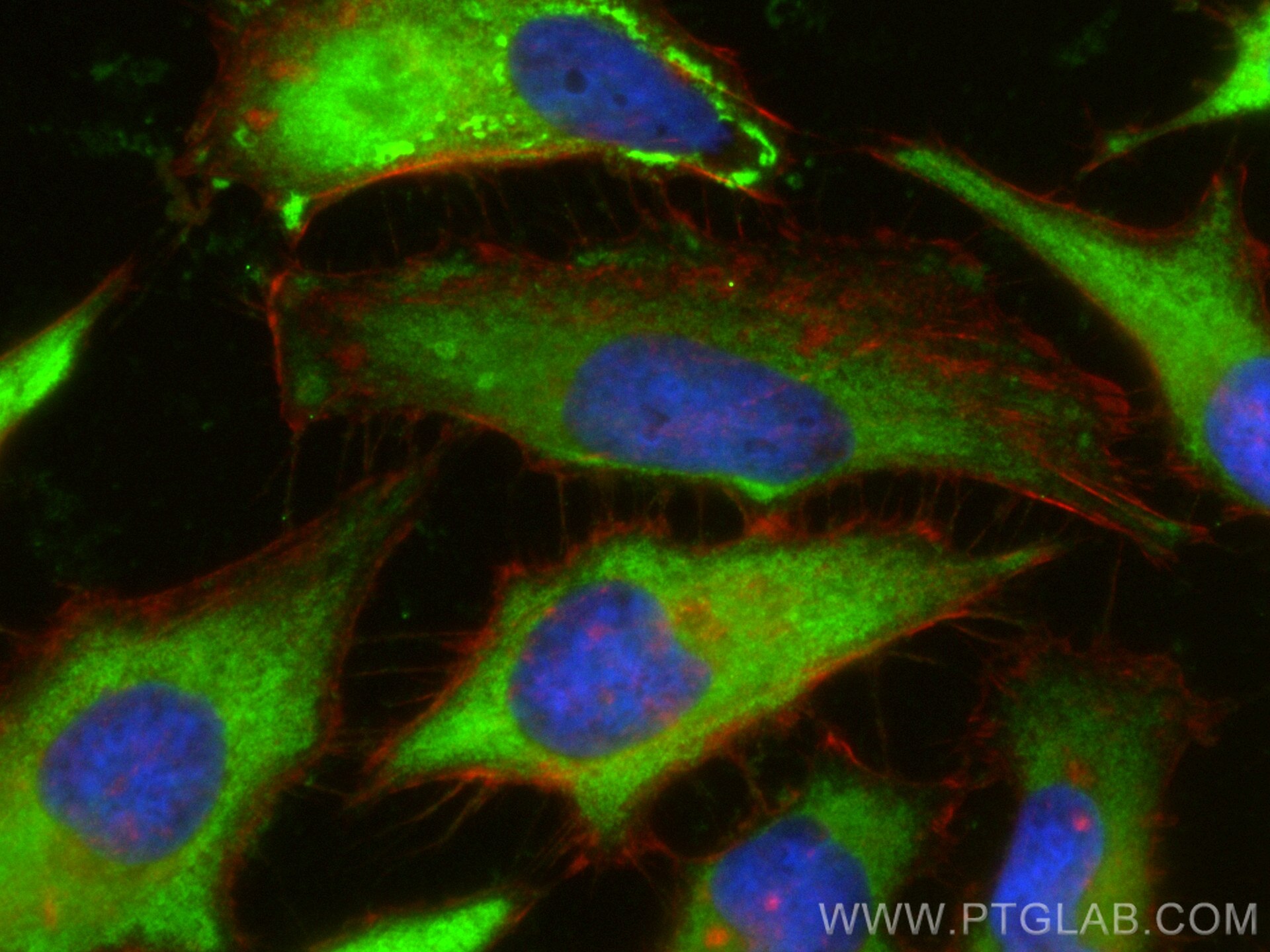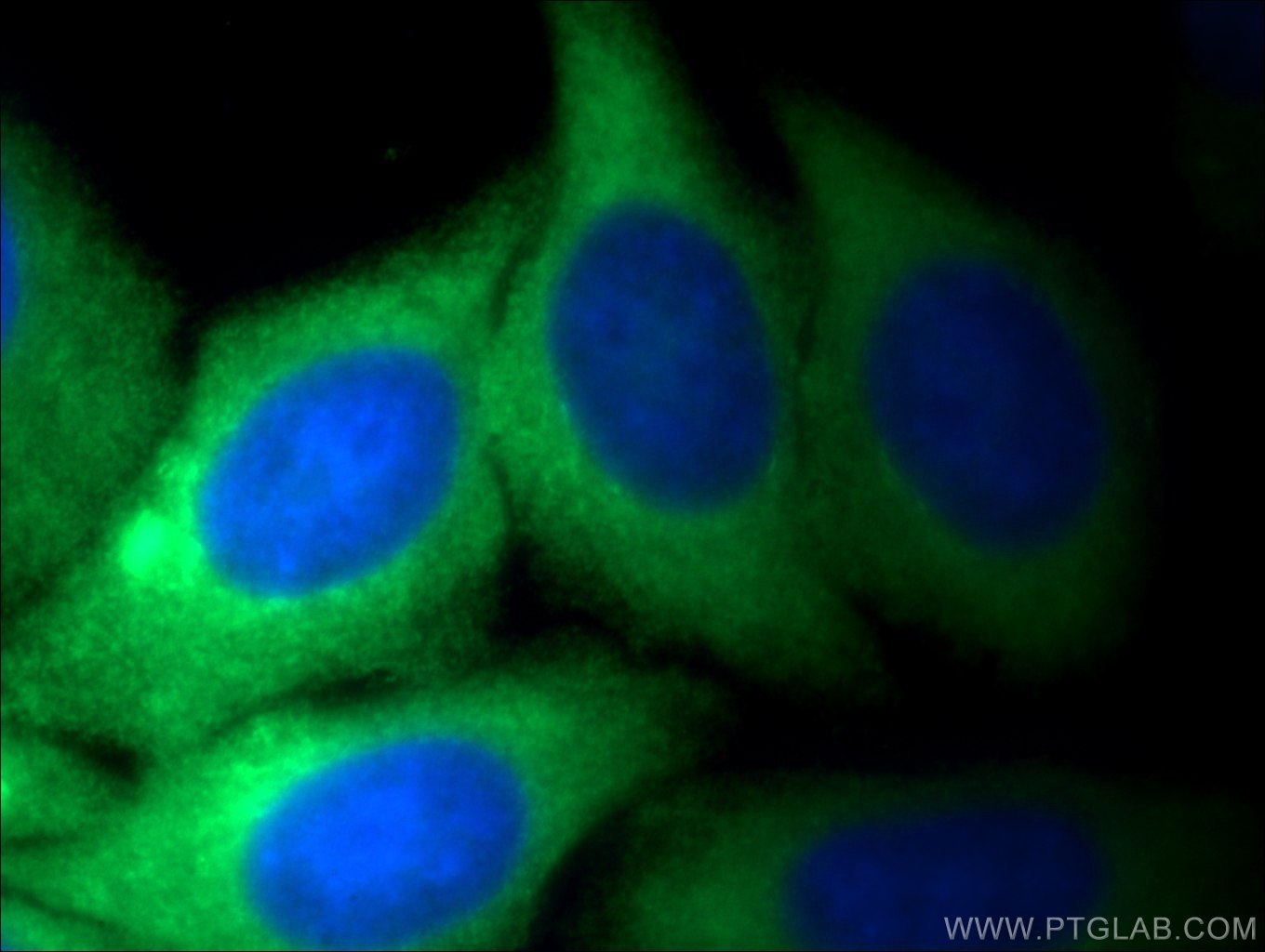Tested Applications
| Positive WB detected in | HeLa cells, HEK-293 cells, MCF-7 cells, COLO 320 cells, SMMC-7721 cells, KEK293 cells, mouse skeletal muscle tissue, rat skeletal muscle tissue, NIH/3T3 cells, mouse brain tissue, mouse heart tissue, rat brain tissue, rat heart tissue |
| Positive IHC detected in | human liver cancer tissue, human normal colon Note: suggested antigen retrieval with TE buffer pH 9.0; (*) Alternatively, antigen retrieval may be performed with citrate buffer pH 6.0 |
| Positive IF/ICC detected in | HeLa cells |
Recommended dilution
| Application | Dilution |
|---|---|
| Western Blot (WB) | WB : 1:1000-1:4000 |
| Immunohistochemistry (IHC) | IHC : 1:100-1:400 |
| Immunofluorescence (IF)/ICC | IF/ICC : 1:200-1:800 |
| It is recommended that this reagent should be titrated in each testing system to obtain optimal results. | |
| Sample-dependent, Check data in validation data gallery. | |
Published Applications
| WB | See 5 publications below |
| IP | See 2 publications below |
| CoIP | See 2 publications below |
Product Information
25659-1-AP targets PKM in WB, IHC, IF/ICC, IP, CoIP, ELISA applications and shows reactivity with human, mouse, rat samples.
| Tested Reactivity | human, mouse, rat |
| Cited Reactivity | human, mouse |
| Host / Isotype | Rabbit / IgG |
| Class | Polyclonal |
| Type | Antibody |
| Immunogen | PKM fusion protein Ag20270 Predict reactive species |
| Full Name | PKM pyruvate kinase, muscle |
| Calculated Molecular Weight | 58 kDa |
| Observed Molecular Weight | 58 kDa |
| GenBank Accession Number | BC000481 |
| Gene Symbol | PKM |
| Gene ID (NCBI) | 5315 |
| RRID | AB_2880181 |
| Conjugate | Unconjugated |
| Form | Liquid |
| Purification Method | Antigen affinity purification |
| UNIPROT ID | P14618 |
| Storage Buffer | PBS with 0.02% sodium azide and 50% glycerol, pH 7.3. |
| Storage Conditions | Store at -20°C. Stable for one year after shipment. Aliquoting is unnecessary for -20oC storage. 20ul sizes contain 0.1% BSA. |
Background Information
PKM, also named as OIP3, PK2, PK3, PK-M1/2, p58, THBP1, CTHBP and Tumor M2-PK, belongs to the pyruvate kinase family. It is glycolytic enzyme that catalyzes the transfer of a phosphoryl group from phosphoenolpyruvate (PEP) to ADP, generating ATP. It stimulates POU5F1-mediated transcriptional activation. PKM plays a general role in caspase independent cell death of tumor cells. PKM has 2 isoforms named as PKM1/M2. The activity of the M2 isoform (but not the M1 isoform) can be inhibited by tyrosine kinase signalling in tumourcells. The primary pyruvate kinase isoform before tumour development is PK-M1; however, the primary isoform from four independent tumours is PK-M2.(PMID:18337823). This antibody can recognize both PK-M1 and PK-M2.
Protocols
| Product Specific Protocols | |
|---|---|
| WB protocol for PKM antibody 25659-1-AP | Download protocol |
| IHC protocol for PKM antibody 25659-1-AP | Download protocol |
| IF protocol for PKM antibody 25659-1-AP | Download protocol |
| Standard Protocols | |
|---|---|
| Click here to view our Standard Protocols |
Publications
| Species | Application | Title |
|---|---|---|
EMBO Rep Histone acetyltransferase 1 is a succinyltransferase for histones and non-histones and promotes tumorigenesis. | ||
Oncogene HMGB1/SET/HAT1 complex-mediated SASH1 repression drives glycolysis and metastasis in lung adenocarcinoma | ||
Int J Mol Sci Acetyltransferase P300 Regulates Glucose Metabolic Reprogramming through Catalyzing Succinylation in Lung Cancer | ||
Cell Mol Biol Lett N6-methyladenosine-modified SRPK1 promotes aerobic glycolysis of lung adenocarcinoma via PKM splicing | ||
CNS Neurosci Ther Novel Insights Into DLAT's Role in Alzheimer's Disease-Related Copper Toxicity Through Microglial Exosome Dynamics | ||
Cell Commun Signal Spinster homolog 2 (SPNS2) deficiency drives endothelial cell senescence and vascular aging via promoting pyruvate metabolism mediated mitochondrial dysfunction |
